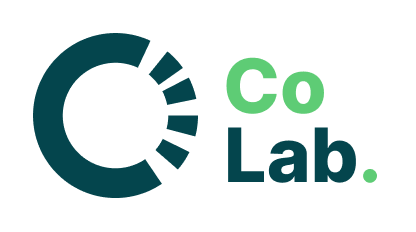Are you ready to embrace failure?
As an educator of six years, I have always held the belief that it's okay to fail. Yet, the true weight of those words didn't fully sink in until I found myself navigating the unpredictable terrain of entrepreneurship with my current venture, CoLab Education.
In the classroom, failure carries immense stakes. Every lesson, interaction, and decision has the potential to shape the educational journey of our students. If a lesson falls short of engaging, critical concepts may not be fully grasped. Mishandling a conflict with a parent could strain crucial partnerships, impacting the student's support system. The responsibility is immense, and the fear of failure looms large.
Transitioning into the realm of entrepreneurship, I found myself confronted with a similar sense of anxiety. However, I quickly realized that the dynamics of failure in the entrepreneurial landscape were fundamentally different. In the world of startups, failure is not only expected but often embraced as an essential part of the learning process. Every podcast I have listened to, article I’ve read, and person I have met has highlighted, bolded, and underlined the impact failure has had on where they are today. Not only are entrepreneurs willing to tell you they failed, they will tell you IN DETAIL how they failed with no shame. Money lost, hours wasted, public perception - none of this has stopped these individuals from pursuing their business goals. Even if that means starting from scratch.
One individual who embodies this ethos is Courtland Allen, the founder of IndieHackers who publicizes his story of determination with 100% honesty and 0% trepidation. He created a highly successful community for founders so I figured I had lots to learn in this podcast about building tech and business strategy.
While I took lots of notes, listening to him speak about failure really got me thinking…
Have I ever really created space for myself and my colleagues to fail?
I would constantly tell my middle school students failure was encouraged. I even had colourful posters (oh so many posters!) that said inspirational things about failing and learning and growing. But I never really saw personal failure as an option, and surely not something to celebrate. Am I a hypocrite?
I know from experience that we often place immense pressure on ourselves to deliver flawless lessons and maintain unwavering professionalism. However, this fear of failure can stifle creativity, experimentation, and ultimately, growth. By giving ourselves permission to fail, we will create space for exploration, reflection, and iteration. This will not only benefit us as educators but will also enrich the learning experiences of our students. We know all this but we rarely see it in practice.
Perhaps it’s because we don’t really know what failure as an educator could and should look like. Surely, there has to be a line between simply not doing our job well and making mistakes that are in turn making us better at our job.
I am really interested in hearing if and how other educators define failure and how it is discussed in our profession.
What constitutes a celebration of learning over a chat in the principal's office?
Are we willing to share exactly how we failed and what we plan to do about it with people outside of our circle of trust?
Is there a desire to learn from others’ failures? And will talking about it truly make a positive impact on education?
Just as we strive to create a safe and supportive environment for our students to learn and grow, I believe it is possible to cultivate a culture where failure is not feared but viewed as a stepping stone towards innovation and progress. It’s just going to take some work and thinking to figure out what that means in our space.
I am officially committing to embracing failure and paving the way for a new generation of educators and innovators. Through CoLab Education, I aspire to create a platform where teachers can collaborate, share resources, and support one another on their journey toward excellence. Failures included and encouraged.
Are you ready to wear failure as a badge of honour, like the entrepreneurs of the world?




